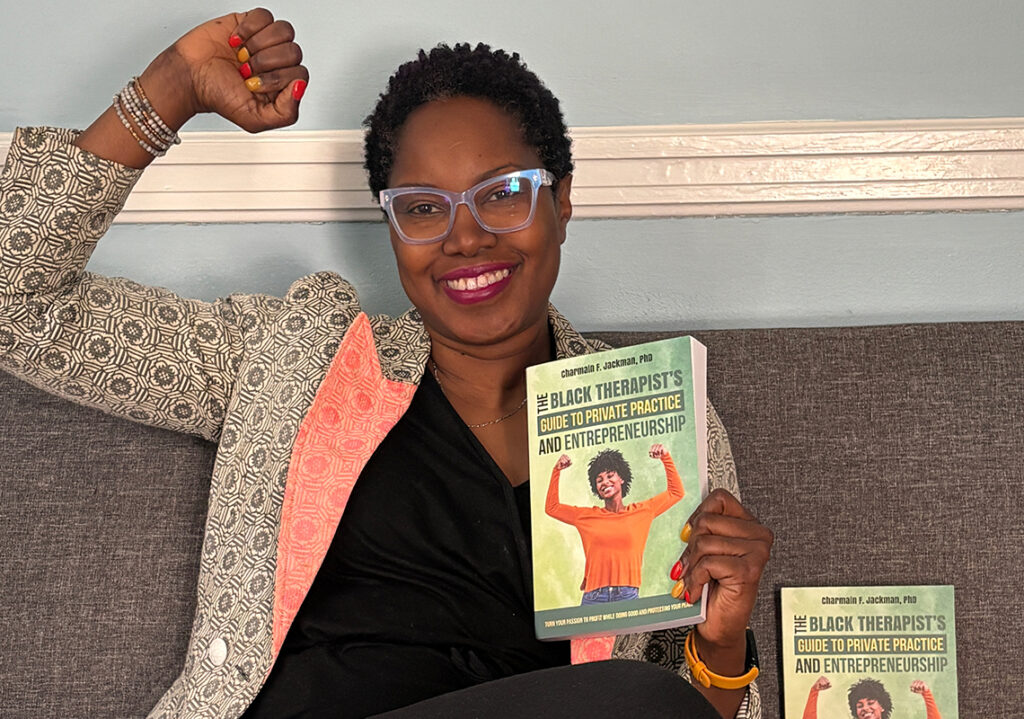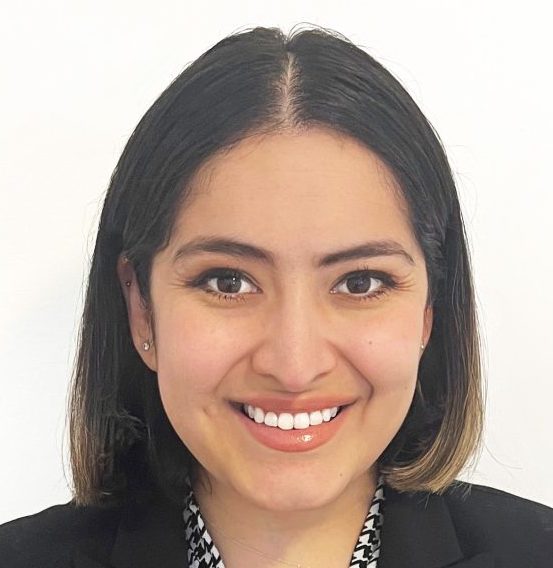For innovators and entrepreneurs, achieving their business dreams usually comes with the cost of understanding what Sandy Tarrant ’99, director of the Entrepreneurship & Innovation Clinic (EIC) at Boston College Law School, labeled “pesky legal stuff.” Tarrant has been the director of EIC for the past five years, managing a program that has two goals: providing entrepreneurial clients economical legal advice and helping students find their own voice as lawyers.
An example of how EIC achieves these goals is seen in the clinic’s recent work with Charmain F. Jackman, PhD, the founder of InnoPsych, one of EIC’s long-standing clients. In 2023, Jackman asked: Could EIC handle negotiations underway for The Black Therapist’s Guide to Private Practice and Entrepreneurship, her debut book publication? EIC typically represents small businesses and entrepreneurs in the Greater Boston area that often cannot afford private legal help, advising them on transactional matters related to starting or operating their business. The publishing industry, however, was a new field for the clinic, as well as for Tarrant.
Confident in her students’ abilities, Tarrant said yes and assigned the client to Amanda Morales ’24, then a second-year student attorney, who took over from the client’s paid counsel and met the challenge. To do so, she had to understand the legal landscape, familiarize herself with a complex contract, and learn the workings of an entirely new industry, all of this midway through negotiations with the publisher’s counsel. “She was able to dig in and figure it out so comprehensively and well,” Tarrant said.
Watching Jackman achieve a milestone like publishing her first book with a reputable publishing house was an honor for Tarrant. “The fact that we got to be involved in this is incredible,” Tarrant said. As a testament to the excellent legal representation by Morales and EIC, the deal required no legal follow-up. “There is no role for us. The client understood what the contract said, wrote the book, and got it published (discount code), without her needing to come back to us with a legal problem,” Tarrant explained. She expressed pride in both the client, for resiliently putting herself out there as an entrepreneur, and in Morales for her exacting work. “For me as a teacher, it is incredibly rewarding. It’s almost a testament as much to Amanda, the student, as to the author.”
Unlike a litigation clinic, students in EIC are not assigned to a case, but to a client. Each semester, Tarrant determines the scope of work the clinic can take on within its timeline. While a client may stay with EIC for more than a year, the students may change. For example, Morales was the third student to work with InnoPsych, although the first to work on Jackman’s book. Students handle everything from filing trademark applications to corporate entity structuring, or in Morales’s case, negotiating contracts.
Currently, the clinic has twenty-six active clients, twelve of which have multiple complex matters. Selecting clients brings challenges of its own, as the EIC has to be realistic about what assignments will be manageable by the students. “Is it work that would be a good fit for a student attorney?” Tarrant asks, recognizing that the students are learning while they are assisting clients and therefore might take more time to complete a task than a licensed attorney would.
EIC’s clients are typically in the early stages of business development. Once a client transitions out of formation and into seeking investments, the clinic steps back. Tarrant explained that as the client obtains funding, they should be able to pay for their lawyers, leaving EIC free to devote its resources to other, less established businesses.
EIC has helped develop entrepreneurships ranging from brick-and-mortar stores to at-home mom-and-pop businesses to apps and robotics companies. “We’ve helped them understand how to operate their businesses legally,” Tarrant said. In return, the clients provide students opportunities to practice lawyering, find their voice, and learn from experience. “Student growth and learning is critical to the mission of the clinic, in addition to the students helping the clients achieve their goals,” Tarrant said.
Any 2L or 3L student at BC Law can apply for the clinic, not just those interested in entrepreneurship. The clinic gives them training in transactional legal skills across the board, all while enabling small businesses and startups to thrive.



